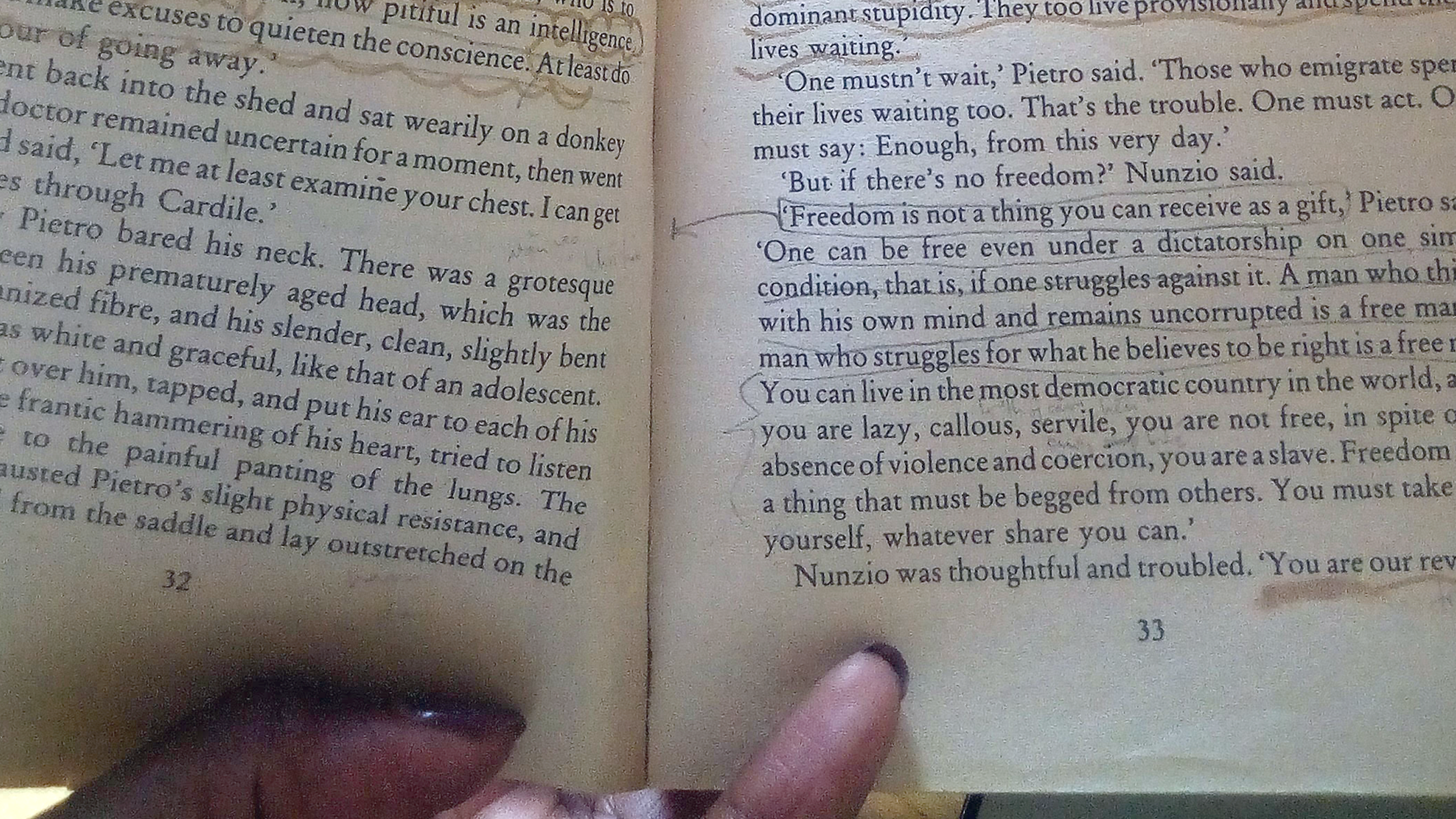He must be a man, my fellow traveler. I don’t know why, but something about his handwriting tells me so.
We are reading Ignazio Silone’s Bread and Wine together. Slowly, line by line, chapter by chapter, we work our way through the text. Where I underline the sentences that strike me in neon pens, he has a lighter footprint, only underlining phrases in his pencil and, evidently, noting the definitions of words. From the delicate curve of his handwriting, and from the neatness written into his scribbles, I sense in him an almost feverish, trembling reverence for books, for the written word.
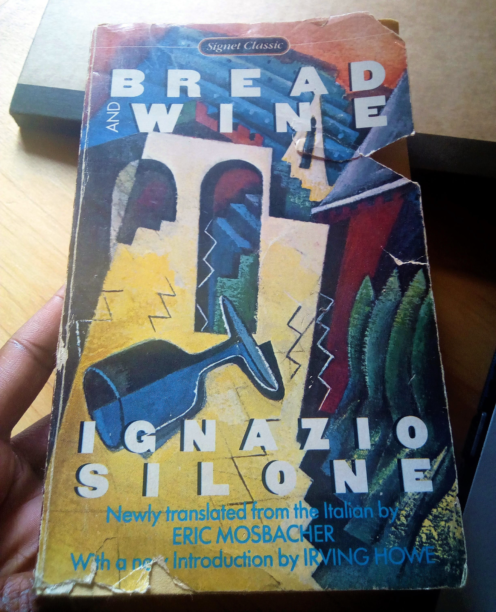
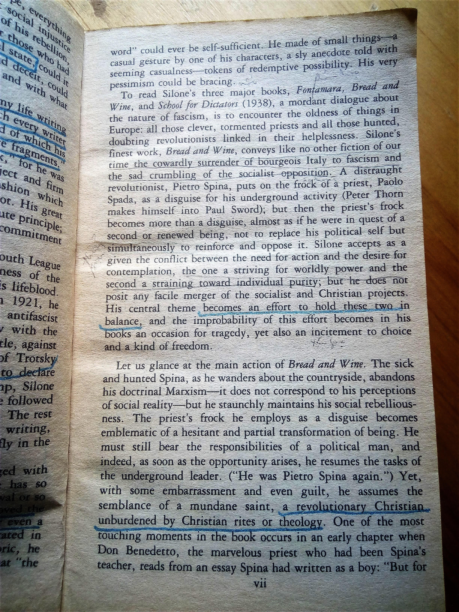
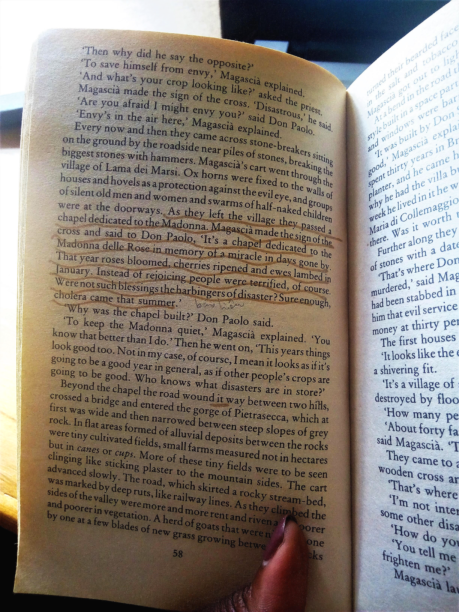
His words are in Italian, I assume. Or Spanish. Sometimes his words are illegible to me, and I can’t even decipher the individual letters that make them up. Unlike his underlinings, they’re written in a language that I cannot enter.
We are parallel travelers. I think of him as a wayfarer who passed through this terrain years ahead of me. Most of the things that stood out for him along the way do nothing for me. But every so often, there is a meeting of minds between me and this man who annotates in little Italian phrases. We are struck by the same passages, and my loud neon pen draws wavy lines over his straight no-nonsense pencil lines.
And yet, we are not really alone, my companion and me. As we journey through the book together, the author is right there with us, the invisible orchestrator of the trail. If the author is the soloist, then my companion in annotation and I are the background vocals, our annotations blending into the music of the author’s words. Compared to my companion, I feel more involved in the book’s plot, in its characters, in its gallop towards a resolution. He, on the other hand, seems distant, as if he has been here before, taking the stance of the reader who opts to remain on the sidelines, doing more observing than participating.
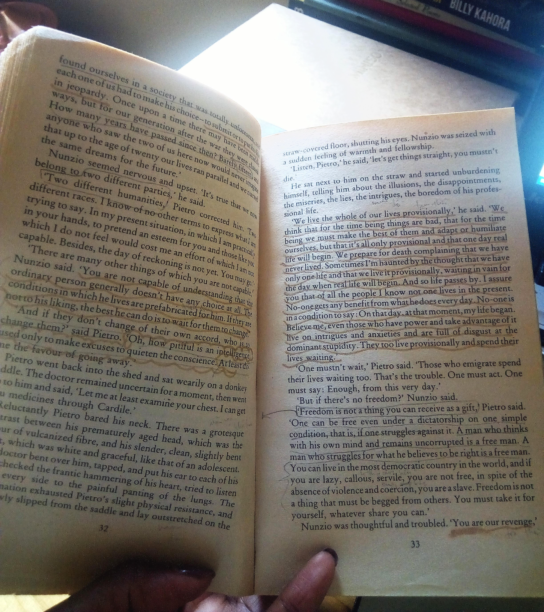
Sometimes he disappears. It gets a little quiet, and I begin to think that, perhaps, he gave up on the book. It makes me a little sad. But there he is again, a few pages later, with his tiny cursive handwriting. I try to read him from his handwriting. A little habit of mine. He seems to me to be the kind of person who is subversive in tiny, little ways; one of those people who, on first glance, seems blindly conformist, until they let you into the alleyways of their person, and you see for yourself what quiet rebellion looks like.
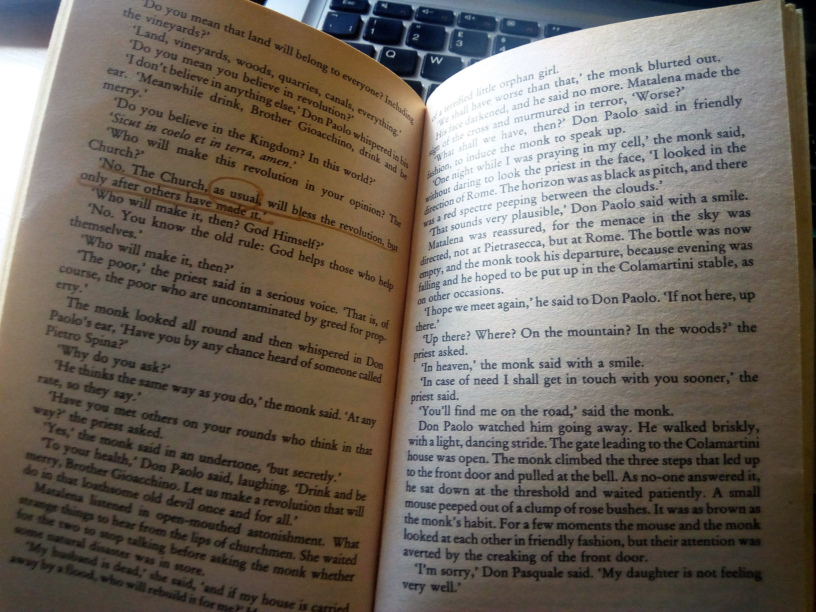
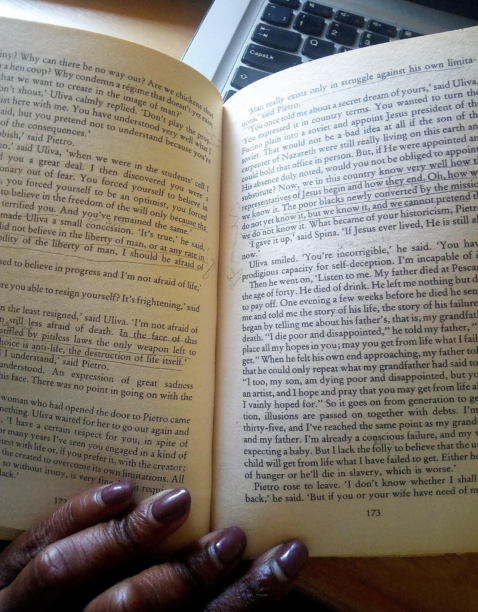
And so I am less alone this weekend. It has been a difficult past few weeks for me, and I have gone towards literature for that distinctive comfort it offers me. That embrace, that stillness, that quiet pleasure that comes from listening to a well-told story. When I came towards the end, I reflected on the inevitable loneliness that comes with completing the reading of a book. This time, my loneliness at the end was intensified by the fact that I would have to part ways with my fellow traveler, whose company I’d come to quite like. He was going off to his life—albeit years ahead of me—and I was returning to this little world of my own making.

